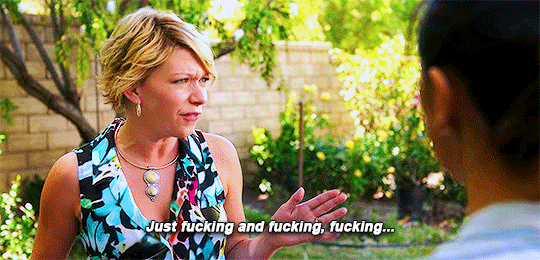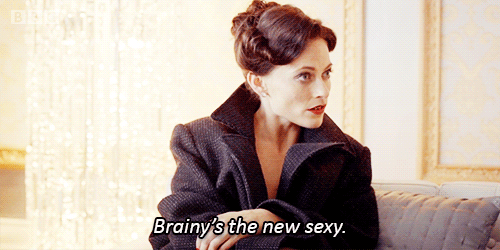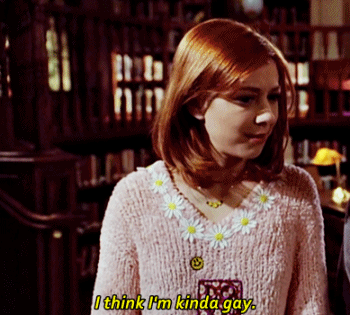#psyposting
Text
I’m going through the poison gym and this foongus just fucking vented

//since this post breached containement:
//Hi this is a silly pokemon roleplay blog where I pretend pokemon are real
288 notes
·
View notes
Text





psy 2 spend an exorbitant amount of time establishing that wolf is hot and cunty and you better remember that every step of the way
#psyposting#90% of that movie are closeups of his face. his face when he shoots a gun#his face when he cums. his face when he smokes. and smokes. and smokes. sucks on that cig like his life depends on it#the other 10% is linda grunting
15 notes
·
View notes
Text

HOWDY MEET YOUR RESIDENT WEIRD FAGGOT
the name’s Rezi because I’m Terezi Pyrope from homestuck (real!) (fictionkin!) (my kin tag is #🧠🫀)feel free to call me Robo or anything else in my carrd though
it/its, zhe/hir/hirs, he/him, pronouns preferred (they’re in order of preference ). but I also like xe/xyr and red/reds,
im so t4t that i like everyone in a homosexual way
weird faggot is my gender identity AND sexuality
feel free to tag me in anything you think I’d like ! and please send asks







#rezis tape recorder#rezi’s scrawlings#masterpieces for my horde#🧠🫀#👻🌬️#👾☀️#💿⚙️#⚛️🌌#🥸🌱#☠️🪽#🐱🌑#🧢💗#🕶️🪫#♈️⏰#♉️🍂#♊️🪢#♋️🦀#♌️🐾#♍️🪡#♎️⚖️#♏️🎱#♐️🦾#♑️🤡#♒️🪄#♓️🐙#vriskaposting#psyposting#botposting#computer bugs#bf art‼️
5 notes
·
View notes
Text
ok but the subtle hinting of psy's tattoo in this chapter cover


#psyposting as if i were a fan#this is my new tag im going to use it fuck everythinggggggg 😤#psy comic
14 notes
·
View notes
Text
Anendophasia: Scientists uncover the weird cognitive impact of life without an inner voice
#Anendophasia#the voices#psychology#Anendophasia: Scientists uncover the weird cognitive impact of life without an inner voice#psypost#psychology news#constant voices
4 notes
·
View notes
Text
TL;DR.
…Children with parents diagnosed with any of the six psychiatric conditions were at significantly higher risk for all 32 outcomes compared to their peers….
…The study also found that children with two affected parents were at even higher risk than those with just one, highlighting the potential compounding effects of parental psychiatric diagnoses….
…Our study found that most children who grew up with parents with mental health issues were free from the same issues as they reached middle adulthood…
(Article below)
A new study offers a look at the ripple effects of parental mental health conditions on children, revealing a broad spectrum of risks that extend beyond the same psychiatric conditions that afflict their parents. The study, published in the American Journal of Psychiatry, demonstrates that children with parents diagnosed with one of six major psychiatric conditions are at increased risk for a wide range of psychiatric and non-psychiatric outcomes.
Despite this, the majority of these children do not receive a psychiatric diagnosis in specialist care by mid-adulthood, suggesting that many factors may mitigate the potential impacts of having a parent with a mental health condition.
Mental health issues tend to run in families. Previous research has shown that children of parents with mental health disorders are more likely to develop similar conditions themselves. However, most studies have been narrow in scope, often focusing on severe conditions like schizophrenia or bipolar disorder, or examining only one outcome at a time. This has left significant gaps in our understanding of how parental psychiatric conditions might affect a broader range of outcomes in children, both psychiatric and nonpsychiatric.
There is a need for a more comprehensive understanding of how parental mental health affects children across a broad range of outcomes, including behavioral, psychosocial, and cognitive domains. This study aimed to fill that gap by using extensive Swedish national register data to examine the associations between six parental psychiatric diagnoses and 32 different outcomes in their offspring.
“Children born to parents with a mental illness have been shown to be at an increased risk of developing mental health problems early in life. However, many studies have focused on parental severe mental illness because of the significant impairment associated with these disorders, less attention has been paid to more common disorders, despite their higher prevalence,” said study author Mengping Zhou, a PhD student in the Department of Medical Epidemiology and Biostatistics at Karolinska Institutet.
“Our study aims to supplement our knowledge and understanding of intergenerational transmission, not only by studying associations of parental diagnoses with rates of diagnoses and mental health issues among the offspring but also by including other behavioral outcomes, such as criminality, suicide, and aspects of psychosocial functioning, namely, school and labor performance.”
The study was based on a population-wide cohort of over three million individuals born in Sweden between 1970 and 2000. By linking several national registries, researchers could track these individuals from birth to middle adulthood, providing a comprehensive view of their psychiatric, behavioral, and cognitive outcomes. The study focused on children with parents diagnosed with one of six major psychiatric conditions: schizophrenia, bipolar disorder, depression, anxiety, alcohol-related disorder, and drug-related disorder.
For each child exposed to a parental psychiatric diagnosis, the researchers matched 10 children from the general population who did not have a parent with that particular diagnosis. This matching allowed the researchers to compare outcomes across children of similar age, parental background, and birth conditions, minimizing the impact of potential confounding factors.
To measure the offspring’s outcomes, Zhou and her colleagues considered 32 different outcomes categorized into six broad groups: psychotic-like outcomes (such as schizophrenia and bipolar disorder), neurodevelopmental outcomes (like attention deficit hyperactivity disorder and autism spectrum disorder), internalizing outcomes (such as anxiety and depression), externalizing outcomes (like substance use disorders and criminality), accidents and behavioral outcomes (including suicide and violent victimization), and school and labor performance outcomes.
They used advanced statistical models to estimate both the absolute risk (the likelihood of the outcome occurring) and the relative risk (the difference in risk between children with and without an affected parent).
The absolute risk data indicated that most children with parents who had psychiatric diagnoses were not themselves diagnosed with a psychiatric condition in specialist care by age 44. Depending on the parent’s diagnosis, between 22% and 25% of these children were diagnosed with one of the 16 psychiatric conditions considered in the study. This suggests that while these children are at higher risk than their peers, the majority do not receive psychiatric diagnoses in specialist care.
“Not all children with a genetic predisposition for mental illness fall ill; in fact, many of these children stay well, at least in terms of not being diagnosed,” Zhou told PsyPost.
…[W]hen looking at relative risks, the picture becomes more concerning. Children with parents diagnosed with any of the six psychiatric conditions were at significantly higher risk for all 32 outcomes compared to their peers. This suggests that the transmission of psychiatric risk from parent to child is largely transdiagnostic, meaning it cuts across specific diagnoses and affects a wide range of psychiatric, behavioral, and psychosocial outcomes.
For example, children with parents diagnosed with schizophrenia or bipolar disorder were at especially high risk for developing psychotic-like outcomes themselves. Similarly, parental substance-related disorders were the strongest predictors of externalizing behaviors, accidents, and poor school and labor performance in offspring. The study also found that children with two affected parents were at even higher risk than those with just one, highlighting the potential compounding effects of parental psychiatric diagnoses.
“Our study found that most children who grew up with parents with mental health issues were free from the same issues as they reached middle adulthood,” Zhou explained. “However, these children still face higher possibilities of experiencing not only mental health issues, but also poor school and work performance, and even some serious behaviors such as suicide and victimization.”
One limitation is that it relied on clinical diagnoses recorded in specialist care settings, which means the absolute risks reported may be underestimates. Many individuals with psychiatric conditions, especially those with milder forms, may receive treatment exclusively in primary care settings or not seek treatment at all. As a result, the study may have missed cases where children did have psychiatric conditions but were not captured in the data.
Looking forward, future research could focus on understanding the mechanisms underlying this transdiagnostic transmission of risk. For instance, it would be valuable to explore the role of genetic, environmental, and psychosocial factors in this process.
Understanding how these factors interact could help develop targeted interventions to mitigate the risks for children with parents who have psychiatric diagnoses. Additionally, research could explore the potential protective factors that allow the majority of these children to avoid receiving psychiatric diagnoses in specialist care, despite their elevated risks.
The study, “Psychiatric Diagnoses in Parents and Psychiatric, Behavioral, and Psychosocial Outcomes in Their Offspring: A Swedish Population-Based Register Study,” was authored by Mengping Zhou, Christine Takami Lageborn, Arvid Sjölander, Henrik Larsson, Brian D’Onofrio, Mikael Landén, Paul Lichtenstein, and Erik Pettersson.
Link to study https://psychiatryonline.org/doi/abs/10.1176/appi.ajp.20230353
#personal#parent mental health increases risk of child mental health#offspring#survey study#specialist care only#limited#depression#anxiety#bipolar disorder#schizophrenia#substance abuse#alcohol use disorder#adhd#autism spectrum disorder#school and performance outcomes#psypost#psychiatric and psychology
0 notes
Text
The Psychology of Revenge and Political Violence: Understanding and Resisting Trump's Manipulation
We are living through a time of unprecedented political violence. #ScienceFact. It is in no small part due to the psychology of revenge and its cynical exploitation by Trump et al.
SUMMARY: The blog post delves into the manipulation of revenge in current politics, focusing on the felonious rapist’s use of revenge and retribution and its impact on society. It explains the psychological implications of seeking revenge and its provocation, pleasure, and consequences. The post highlights the rise of political violence and the catalysts behind it, such as paranoia, racism, and…

View On WordPress
#COVID19#Dopamine#Greg Abbott#Gun Violence#House Republicans#Joe Biden#MAGA#Pandemic#Political Violence#Provocation#PsyPost#Restorative Justice#Retribution#Reuters#Revenge#Reward System#Right-Wing Extremism#The Liking System#The Wanting System#Trump
0 notes
Link
Go birding. For your health!
0 notes
Text
Trolley problems are so annoying like why can’t you just stop the damn train
#pokemon irl#rotomblr#pokeblogging#psyposting#//I feel like considering the contents of a playbypost I am in this is nice foreshadowing. will I follow up on it? 🤷♀️🤷♀️🤷♀️🤷♀️
40 notes
·
View notes
Note
i dont know if you remember making the post but there was a post where you said something like "serirei is noooot influential yaoi / serirei is nothing" and after i saw it i started saying versions of that out loud as a reaction whenever something gay happens in media and my friend started doing it too as a result i just thought that it is funny

hoho! yes! i remember that post! dearimasu's influence can be felt throughout all of tumblr

psycho teddy do you like him
22 notes
·
View notes
Text

Like to watch Rocky Horror with him reblog to eat him !
12 notes
·
View notes
Text
psy II to jest obiektywnie gorszy film od jedynki, ja wiem. ale oglądanie go jest o tyle razy lepsze
12 notes
·
View notes
Text
The Horny Bisexual Trope

Eleanor Shellstrop, The Good Place
"[In a research paper by The Journal of Sex Research] researchers found that bisexual women, compared to lesbians and heterosexual women, were evaluated as more confused, promiscuous, non-monogamous, neurotic, extraverted, and open to experiences. Bisexuals were also evaluated as less agreeable and less conscientious." Psypost

Lisa Palmer, Santa Clarita Diet
"Though LGBT+ representation in the media has been improving in recent years, it is still rare to see positive portrayals of bi characters on television. Characters are usually assumed to be either gay or straight, depending on which characters they are interested in romantically. Even if a character is portrayed as being attracted to both male and female characters, they rarely identify as bi, instead claiming to “not need labels.”
"Bi characters are typically villains, promiscuous characters, or untrustworthy." Soapboxie

Nick Scratch, The Chilling Adventures of Sabrina
"A common and inaccurate stereotype is that all bisexual people do not want to be, or cannot be, monogamous. It is inaccurate and harmful to imply that bisexual people are categorically more “promiscuous” than others. People of all sexual orientations can be monogamous for some or all of their lives, or they can choose other types of relationships. This decision is entirely separate from one's sexual orientation." GLAAD Media Reference Guide

Klaus Hargreeves, The Umbrella Academy
"Pansexual people are [also] commonly faced with [this] stigma, fuelled in part by some people's belief that they lead hypersexualized lives. This infers that pansexual people are more likely to cheat and be promiscuous because they are "available to everyone."
"This misconception has led some people to assume that pansexual people are wanting to engage in any and all sexual activities, negating the need for sexual consent." Very Well Health

Irene Adler, Sherlock
"The hypersexualization of the LGBTQ community has taken many forms. Not only are gay men and transgender women framed as sexual predators, but lesbians are objectified and fetishized by straight men, and bisexual and pansexual people are assumed to be constantly sleeping around." The Under Ground
Bisexuality on screen is used to indicate sexual experience and promiscuity. This feeds into the misconception that bisexuality is used as a way to appear more attractive and "bisexual people [are] just attention-seeking nymphomaniacs – or that bisexuality was, in the words of Carrie Bradshaw, “Just a layover on the way to Gay Town.”" Fashion Journal

Margot Tenenbaum, The Royal Tenenbaums
"The way its [bisexuality] been commodified, that was always going to happen… there’s a whole sort of discourse around bisexuality, its
exotic… that bohemian angle, it masks the actuality of being a bisexual person even in this day and age." University of Huddersfield
Bisexuality is used to add to the mysteriousness of an already mysterious character. It's not undisclosed for privacy; it's hidden to feed into a "not like other girls / guys" trope.

Willow Rosenberg, Buffy the Vampire Slayer
"Bisexuals talk about “coming out twice"—once as gay or lesbian in a heterosexual world when they acknowledge their attraction to their own gender, and then again when they acknowledge their continuing attraction to the opposite sex." Psychology Today
The common depiction of bisexual myths is one of the reasons bisexuals feel they have to come out numerous times or don't come out at all.
"Three in ten bi men (30%) and almost one in ten bi women (8%), say they cannot be open about their sexual orientation with any of their friends, compared to two per cent of gay men and one per cent of lesbians." Stonewall
Not all visibility is good visibility.
#bisexuality#bisexual#lgbtqia+#queer representation#bisexual representation#the good place#santa clarita diet#the chilling adventures of sabrina#the umbrella academy#sherlock#the royal tenenbaums#buffy the vampire slayer#willow
125 notes
·
View notes
Text
By: Eric W. Dolan
Published: Jan 3, 2022
Cognitive performance is slightly reduced among those with higher levels of celebrity worship, according to a new study published in BMC Psychology.
“Interest in the topic of celebrity worshipers spans almost two decades. From several studies, over that period, research showed a weak to moderate tendency for those who showed the strongest admiration for their favorite celebrity to have lower cognitive skills, using a variety of cognitive measures,” explained study authors Lynn E. McCutcheon, Ágnes Zsila, and Zsolt Demetrovics in a joint statement to PsyPost.
“However, most of these studies did not control for a variety of extraneous variables. The current study did control for several possibly relevant variables.”
In the study, 1,763 Hungarian adults completed a 30-word vocabulary test and a digit symbol substitution test, a validated assessment of fluid intelligence. The researchers also collected data about the participants’ self-esteem, current family income, material wealth, and highest level of education.
Celebrity worship was measured using a scientific questionnaire known as the Celebrity Attitude Scale. The scale asks participants the extent to which they agree or disagree with statements such as “I often feel compelled to learn the personal habits of my favorite celebrity,” “I am obsessed by details of my favorite celebrity’s life,” and “If I were lucky enough to meet my favorite celebrity, and he/she asked me to do something illegal as a favor I would probably do it.”
Even after controlling for demographic and socioeconomic variables, the researchers found that high scores on the Celebrity Attitude Scale were associated with lower performance on the two cognitive ability tests.
“We found a weak tendency for those who showed the strongest admiration for their favorite celebrity to have lower cognitive skills, suggesting that the earlier results were not due just to chance,” the authors of the study said. “Our results also support previous findings showing that excessive behaviors such as celebrity worshiping can possibly impair cognitive functioning, presumably due to the increased focus and energy invested in this behavior that becomes dominant in the individual’s life.”
“Although celebrity admiration seems not to be a strong precursor of poorer cognitive performance, high levels of admiration can be regarded as one contributing factor to lowered performance in tasks requiring cognitive effort, independently from education or age.”
But it is unclear whether celebrity worship is the cause or consequence of reduced cognitive ability. For example, it “may be that individuals with higher levels of cognitive skills are more likely to understand the marketing strategies behind a famous person,” and thus less vulnerable to celebrity worship, the researchers explained. But it is also possible that celebrity worship functions like an addictive behavior and requires cognitive effort to be maintained.
Previous research has found that celebrity worship is associated with addictive and problematic social media use.
“Future studies should seek further support for our suggestion that the cognitive effort invested in maintaining the absorption in a favorite celebrity may interfere with the person’s performance in tasks that require attention and other cognitive skills,” the authors told PsyPost. “Although our research does not prove that developing a powerful obsession with one’s favorite celebrity causes one to score lower on cognitive tests, it suggests that it might be wise to carefully monitor feelings for one’s favorite celebrity, keeping in mind that most celebrities are human beings who have some flaws just like average persons have.”
The study, “Celebrity worship and cognitive skills revisited: applying Cattell’s two-factor theory of intelligence in a cross-sectional study“, was published November 8, 2021.
--
Abstract
Background
Almost two decades of research produced mixed findings on the relationship between celebrity worship and cognitive skills. Several studies demonstrated that cognitive performance slightly decreases with higher levels of celebrity worship, while other studies found no association between these constructs. This study has two aims: (1) to extend previous research on the association between celebrity worship and cognitive skills by applying the two-factor theory of intelligence by Cattell on a relatively large sample of Hungarian adults, and (2) to investigate the explanatory power of celebrity worship and other relevant variables in cognitive performance.
Methods
A cross-sectional study design was used. Applying an online survey, a total of 1763 Hungarian adults (66.42% male, Mage = 37.22 years, SD = 11.38) completed two intelligence subtests designed to measure ability in vocabulary (Vocabulary Test) and digit symbol (Short Digit Symbol Test). Participants also completed the Celebrity Attitude Scale and the Rosenberg Self-esteem Scale. Subjective material wealth, current family income and general sociodemographics were also reported by participants.
Results
Linear regression models indicated that celebrity worship was associated with lower performance on the cognitive tests even after controlling for demographic variables, material wealth and self-esteem, although the explanatory power was limited.
Conclusions
These findings suggest that there is a direct association between celebrity worship and poorer performance on the cognitive tests that cannot be accounted for by demographic and socioeconomic factors.
==

#Eric W. Dolan#psychology#human psychology#celebrity worship#celebrities#intelligence#religion is a mental illness
25 notes
·
View notes
